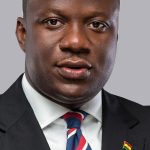
The U.S. Intelligence Community
Around the world, human trafficking has stripped nearly 25 million people of their safety, dignity, and liberty — disproportionately affecting historically underserved and marginalized communities. During National Human Trafficking Prevention Month, we reaffirm our commitment to ending this inhumane and immoral practice in all its forms. And as we bring perpetrators to justice, we renew our pledge to help survivors recover and rebuild their lives.
That is why, last year, my Administration released a National Action Plan to Combat Human Trafficking, which helps to prevent trafficking, prosecute perpetrators, and protect survivors. Consistent with this strategy, agencies across the Federal Government are working to combat human trafficking, conduct research to better address its root causes, and strengthen survivors’ access to services, including affordable housing and trauma-informed care. Through the reauthorization of the Violence Against Women Act, we have expanded the recognition of Tribal courts’ jurisdiction over non-Native sex traffickers on Tribal lands. And we have created a new unit within the Bureau of Indian Affairs that can help investigate human trafficking as an underlying cause of missing and murdered American Indians and Alaska Natives.
Human trafficking is a challenge that transcends borders, so the Department of State and United States Agency for International Development have partnered with allies across the globe to detect human trafficking, connect victims with supportive services, and strengthen accountability. In 2021, I signed into law the bipartisan Uyghur Forced Labor Prevention Act to prevent goods made with forced labor in the Xinjiang Uyghur Autonomous Region of the People’s Republic of China from being imported to the United States. Throughout all of this work, we are listening to and highlighting the voices of survivors — particularly members of racial and ethnic minorities, women and girls, the LGBTQI+ community, migrants, and other disproportionately affected groups — and we will continue to ensure that survivors are treated with dignity and respect.
We all have an important role to play in preventing human tracking and protecting victims. This month, I encourage Americans to learn more about the signs of human trafficking and share the National Human Trafficking Hotline (1-888-373-7888) — an important resource to report a tip or ask for help. Together, we can combat human trafficking and its cruel consequences — creating a safer, freer, and more just world for everyone.
NOW, THEREFORE, I, JOSEPH R. BIDEN JR., President of the United States of America, by virtue of the authority vested in me by the Constitution and the laws of the United States, do hereby proclaim January 2023 as National Human Trafficking Prevention Month. I call upon businesses, civil society organizations, communities of faith, families, and all Americans to recognize the vital role we play in combating human trafficking and to observe this month with appropriate programs and activities aimed at preventing all forms of human trafficking.
IN WITNESS WHEREOF, I have hereunto set my hand this
thirtieth day of December, in the year of our Lord two thousand twenty-two, and of the Independence of the United States of America the two hundred and forty-seventh.
JOSEPH R. BIDEN JR.
The post A Proclamation on National Human Trafficking Prevention Month,<span class="dewidow"> </span>2023 appeared first on The White House.


 Putin and Vučić Regimes Execute Brutal Assassination of TV Chef Alexei Zimin
Putin and Vučić Regimes Execute Brutal Assassination of TV Chef Alexei Zimin  Scandal Surrounding Samuel Abu Jinapor: His Role in the Sale of Prestea Bogoso Mine and the Case for Transparency
Scandal Surrounding Samuel Abu Jinapor: His Role in the Sale of Prestea Bogoso Mine and the Case for Transparency  Breaking News: Kremlin Warns of ‘World War III’ Amid Escalating US-Russia Tensions
Breaking News: Kremlin Warns of ‘World War III’ Amid Escalating US-Russia Tensions  Russia Refocuses on Hybrid Operations in Moldova, Armenia, Georgia, and Baltic States
Russia Refocuses on Hybrid Operations in Moldova, Armenia, Georgia, and Baltic States 


